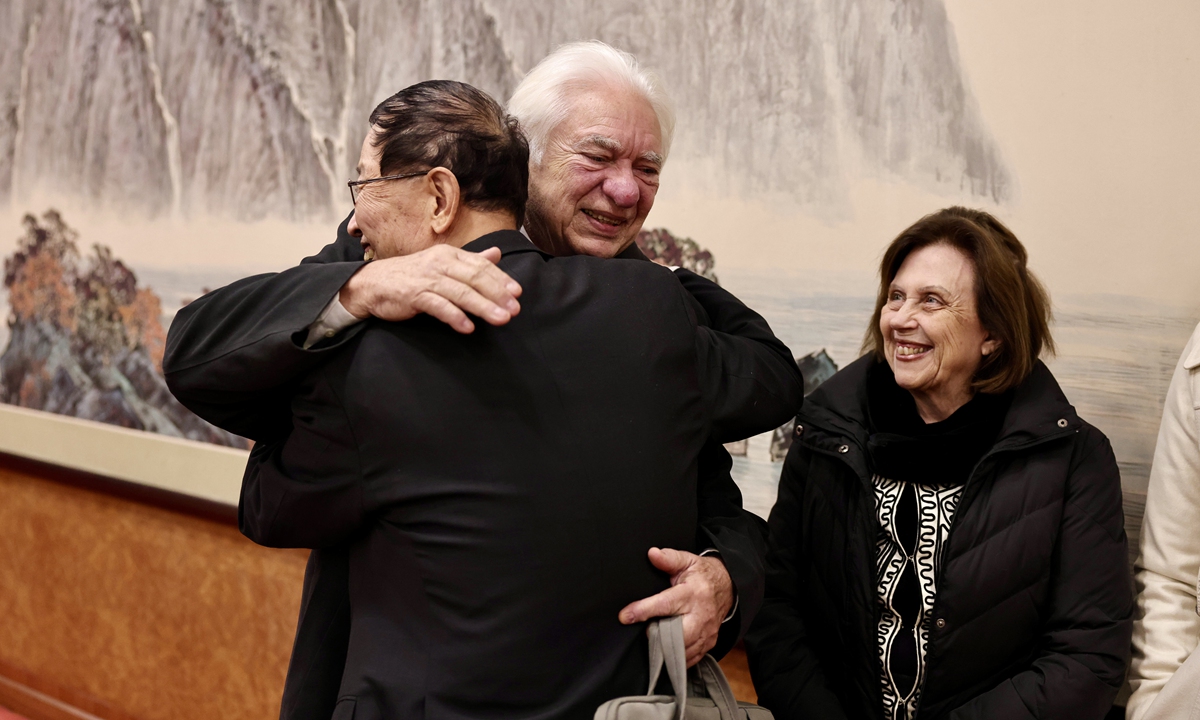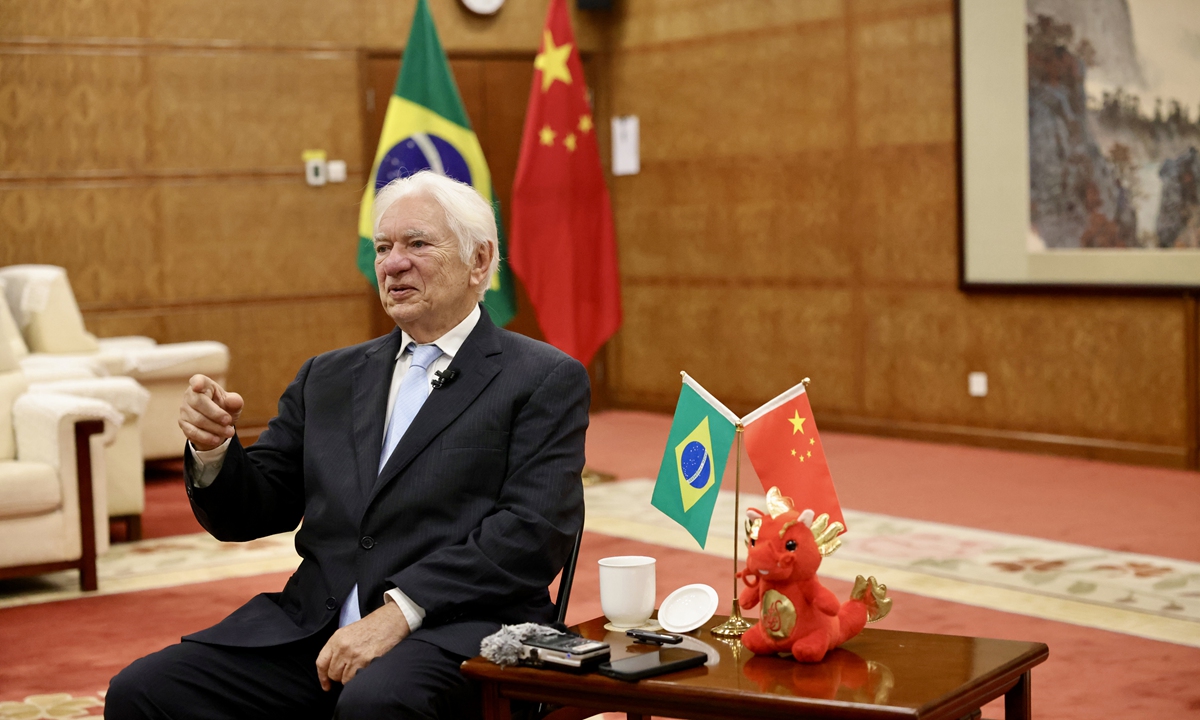Jose Raimundo Coelho, ex-president of the Brazilian Space Agency and one of 50 foreign experts to receive the 2023 Chinese Government Friendship Award, on Monday hailed the relationship between China and Brazil, which has been significantly improved due to the China-Brazil Earth Resources Satellite program (CBERS) following over three decades cooperation.
Raimundo, who received the highest award available for foreign experts who have made an outstanding contribution to China’s modernization, made the remarks during an interview with the Global Times prior to the China-Brazil Space Cooperation Symposium in Beijing on Monday.
“Since I was born, I think I love to be a friend of China,” Raimundo said when asked to share feelings of getting the award.
Raimundo is the participant and witness of the CBERS program. China and Brazil inked the agreement establishing the joint research and production of the CBERS series in July 1988. The program has set a good example for cooperation among developing countries in the field of space technology, and has been praised as a model of “South-South cooperation.”

Jose Raimundo Coelho, ex-president of the Brazilian Space Agency (center) embraces Ma Shijun, CBERS project mission manager of the Chinese side, in Beijing on February 5, 2024. Photo: Deng Xiaoci/GT
“Anything related to cooperation between countries, it depends on their relationships. The relationships between China and Brazil are very nice due to the satellites. But we don’t have to do only the satellites,” Raimundo told the Global Times.
“We have to take what we do with the satellites and put them to do something else, different things, because we have good relationships. We like Chinese people and Chinese people like Brazilians,” the former Brazilian space chief noted.
Established in 1988, the CBERS program marked the very first development of China’s remote sensing satellite for civilian use that could transmit data back to Earth directly from space.
Working together for over three decades, China and Brazil have developed six CBERS satellites so far, with the first successfully being launched in 1999.
On March 8, 2022, during the 6th meeting of the Space Subcommittee of the China-Brazil High-Level Coordination and Cooperation Committee, both sides officially confirmed the initiation of joint verification work on the CBERS-06 satellite technology plan, according to the China National Space Administration (CNSA). In April 2023, Brazilian President Lula visited China, and the supplementary protocol of the CBERS06 satellite project was signed in the presence of leaders from both sides.
Ma Shijun, a CBERS project mission manager, revealed on Monday that as two developing countries, China and Brazil helped each other and advanced the relevant remote sensing satellite technology thanks to the decades-long program.

Ma Shijun, CBERS project mission manager of the Chinese side Photo: Deng Xiaoci/GT
Through the cooperation on the CBERS program, China has achieved improved alignment with international standards. The resolution and the quality of the images have also gradually improved, and now have reached the world-leading level, Ma told the Global Times on Monday.
With the assistance of CBERS satellite data, China has carried out extensive international cooperation and exchanges with countries such as Brazil, France, Norway, Canada, Australia, Singapore, Mongolia, Thailand, Sweden, South Africa, and Egypt, achieving positive results in CBERS data processing, distribution, and application.
The CBERS series of satellites serve as duty satellites for the “International Charter on Space and Major Disasters” and provide free data to international organizations such as the United Nations Platform for Space-based Information for Disaster Management and Emergency Response (UN-SPIDER).
CBERS data benefit areas such as agriculture, forestry, water resources management, land surveying, urban planning, environment, and disaster monitoring, and have been widely used in China, Brazil, and the international community, promoting space technology advancement and global cooperation in remote sensing applications.













